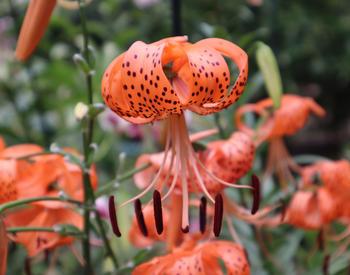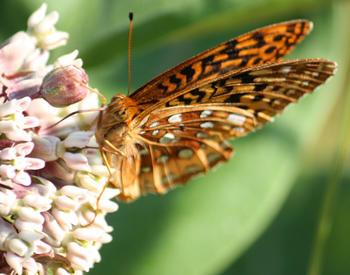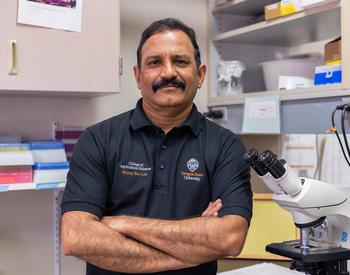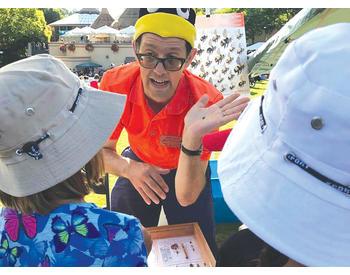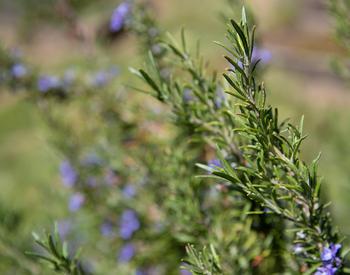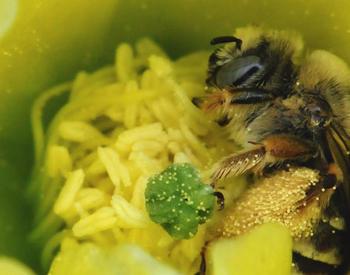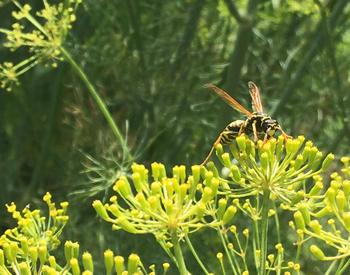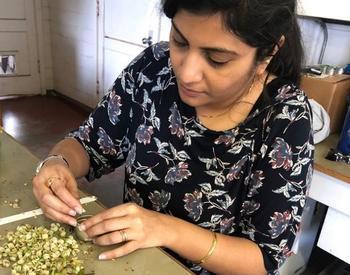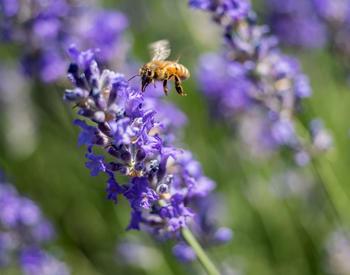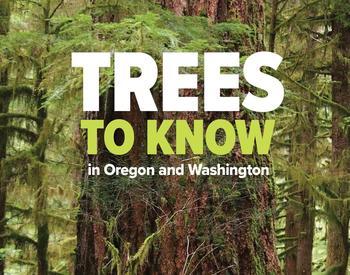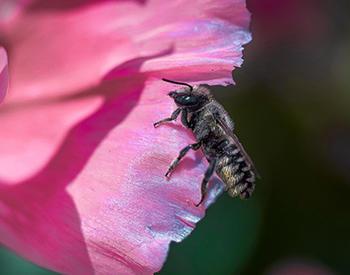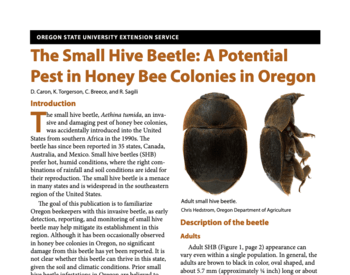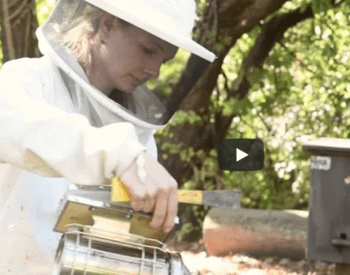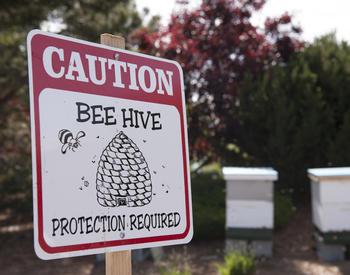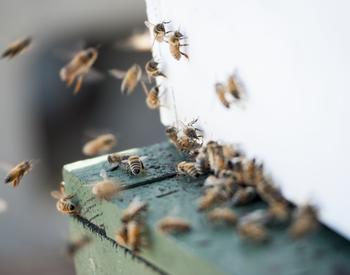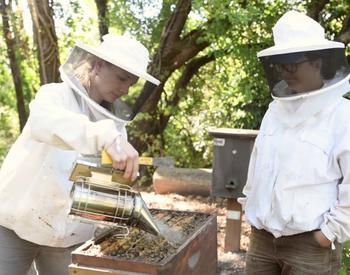Transcript
[00:00:00] Andony Melathopoulos: Beekeeping has become quite technical and complicated affair over the last few years. And if you're particularly, if you're a commercial beekeeper, you need to stay on top of the latest developments and crop systems new and innovative ways to control Varroa mites, disease management nutritional supplements.
[00:00:16] The list goes on and to bridge the gap Canadian provinces have come up with this innovative solution. They're called tech transfer teams. They're often collaborations between the ministry of agriculture. And the beekeeping association and these tech transfer teams really focus on bringing innovation to the industry in a way that's easily digestible, easily operationalized.
[00:00:37] And this is what's recently happened in the province of British Columbia, just north of us here in Oregon. Dr. Nuria Morfin is the brand new tech transfer lead for the. British Columbia Honey Producers Association. I had the great opportunity to catch up with her to hear about this brand new program.
[00:00:55] And also for those of us in Oregon, to get a little glimpse into sort of what beekeeping in British Columbia is like, and some of the challenges that they're experiencing there. So without further ado, let's head up to British Columbia to talk with Dr. NIR Morphin this week on pollination.
[00:01:22] All right. I'm so excited this episode to travel up the . I don't know what it becomes when it's in British Columbia, but up to British Columbia to meet the brand new lead of the BC tech transfer program. Nuria, Morfin. Welcome to Pollination.
[00:01:39] Nuria Morfin: Thank you for the invitation. I'm glad to be here with you.
[00:01:42] Andony Melathopoulos: I'm so excited. I know it's been a long time and I think the BC beekeepers have watched various other provinces around Canada have these new tech transfer positions come into place. And it's really a wonderful to see across the border this new position. And now I guess, just to back it up, I want to.
[00:02:01] To what the tech transfer position is, but you've been working with bees for a while. Can you tell us a bit about your background and how'd you get into bees in the first place and what have been what were you doing before you showed up in the lower mainland?
[00:02:14] Nuria Morfin: Sounds good. Thank you. Like many, eh, I never thought I was going to end up working with bees, but my professional path led me to that.
[00:02:24] So I studied veterinary medicine at the National Autonomous University of Mexico. And we had this class on honeybee biology and apiculture, right at the end of my last semester. And I took it with Dr. Zozaya, very well recognized for his studies on Africanized bees in Mexico.
[00:02:52] And he just got my attention and he was so passionate about the topic. He traveled a lot. He knew so many things about honey bees and honey bee biology; and I thought it would be a great idea to have my own beekeeping business while finishing university and working on my other project, which at the moment was a small animal clinic.
[00:03:16] I was very involved in a humane society and working as a vet (clinic). I convinced some friends to start a beekeeping business. We just took a course. We knew nothing about honeybees and we decided to buy these bees that were highly defensive, Africanized. So we moved them to the dry tropics of Mexico.
[00:03:42] Close to Acapulco. -perhaps people (listensers) have been there. It was a great experience. I learned a lot the hard way. I learned that management is important and that breeding and genetics are very important when keeping bees and other livestock. And one day we were working, trying to feed the bees. And I had so many bees on me, so many stings in my risks, my ankles, my neck.
[00:04:15] It was a hard, stressful day for bees and humans. I just dropped the hive tool and I started running towards the river. I was not the only one, my friends were behind me. So at the end we donated the hives to the university and I decided to keep working on bees and start researching. So I did my master's and I worked with neotropical bees for pollination services.
[00:04:48] And then later on, when I was finishing my undergrad, we had to do these ‘community service’, which is part of the university program (with federal funded universities we have to do this program). I worked as an extensionist, as a link between the university and the beekeepers in Mexico. It was a great opportunity to have this experience of connecting both of them.
[00:05:14] (a link between both worlds). Later on, I had the chance to do an internship at the Honey Bee Research Centre, University ofGuelphl with Dr. Ernesto Guzman. So I knew the work of a Dr. Guzman. He was very well known in Mexico for his projects, a very successful breeding program to reduce defensive behavior in Africanized bees and increase honey production.
[00:05:43] So it was really exciting to go and work with him. And I joined him there and later on, I decided to do my PhD with him as well.
[00:05:56] Andony Melathopoulos: So you've had both I think about your experiences in Mexico, but also in Canada, those are the two hotbeds of apicultural work.
[00:06:05] Then, I was thinking wealth and specifically, goes back such a long history of agricultural research at Guelph. So you've got everything, but the U S you're on both sides of that broad experience from Northern to Southern beekeeping. I'm glad that first experience didn't dissuade you and it's, it really must be a Testament to your character, to.
[00:06:26] Stung your way into the river and still come back, but you really love bees.
[00:06:31] Nuria Morfin: Oh yeah. And I have so many stings. I had no idea about bees or anything. So I decided to store my boxes in my mom's house, in the backyard when I was studying. And of course a swarm got in and my mom called me, I drove back and I told her ‘don't do anything’.
[00:06:49] Don't go out. And yeah, they were all over the place. My family got stung, but only anecdotes, nothing bad happened.
[00:06:59] Andony Melathopoulos: learning experience. I'm really impressed that you have those experiences though, because in the lower mainland where your work, there are a lot of people who are getting the beekeeping for the first time that don't have facility.
[00:07:10] Have a pickup, you don't have a pickup truck. They just have a, I don't know, maybe a Tesla,
[00:07:18] they live in an apartment and they have to make it work. And there is, you clearly had to navigate all of that.
[00:07:27] Nuria Morfin: Yeah. And that is, we all had our own experiences, but it’s good to have someone that has been there and to tell you where to go and how to do things, just facilitate things a little bit.
[00:07:39] Andony Melathopoulos: That's fantastic. And so you're now I also really loved the way that you described this. Your background is not, although you have a PhD, at one of the most prestigious apicultural universities in the world, You've also had this connection with industry with actually doing beekeeping through the vet school having an extension experience.
[00:08:00] And I guess, that sets this up really well to thinking about this position in British Columbia, and for our listeners in the U S the idea of a text tech transfer program may be unfamiliar. But this tech transfer program is different from a program that's based in the ministry of agriculture.
[00:08:14] It's different from one that's based in the university. How would you describe what the, what the tech transfer program.
[00:08:22] Nuria Morfin: For sure. So I recently had to present and introduce the program to different associations and clubs. So I was doing some reading and I bumped into very interesting articles or references.
[00:08:37] The tech transfer programs go back to the industrial revolution -there were all these boom of innovations, new science, new technologies, and they were trying to figure out how to transfer those into the industry and make it grow, so those were the beginnings of the tech transfer ptrograms. So we connect
[00:09:04] basic research and the industry -se communicate with both. We see what the industry needs, which is always being challenged by the market, by stressors, by a lot of different things. For example, with the beekeeping industry, with new pests and disease.
[00:09:29] So we try to find, or to identify the difficulties or challenges that beekeepers are facing. And trying to look at solutions through research, and knowledge transfer. And I like to think that we're bilingual, that we ‘speak’ research and we also ‘speak’ industry. Then main difference of the TTPs in Canada is that we are not linked by a, or we're not associated with a university.
[00:10:00] Or a government. We are part of the beekeeping association. So we are very industry focused. Although we are funded by the ministry of agriculture, eh, our mandate or what we do is based on what the industry needs based on the beekeepers.
[00:10:22] Andony Melathopoulos: Okay. That's a, that's an amazing model. It sounds like one that you're really well suited with.
[00:10:26] And I know you've only been in BC for a few months. You're barely on the ground, but just in terms of your, your first impressions, what excites you about BC beekeeping? What's different from Mexico or Ontario? What's what, whether your first.
[00:10:43] Nuria Morfin: The first impressions. I was very excited to see how eager beekeepers were to start the program.
[00:10:49] So they were reaching out, having all these ideas, just trying to help support the program. So that says a lot about the beekeepers and the industry and how eager they are to grow. And to overcome the challenges that they are facing. And the other one was I thought the first thing I have to do is understand BC and then go from there.
[00:11:19] And it's just impressive, how big the province is.
[00:11:30] There are eight agricultural regions. So when I'm trying to lead a program or a project. I have to think of eight different parts of BC that are very different. For example, in the lower mainland, you have these short winters, very long beekeeping season with this amazing weather and all this agriculture happening.
[00:11:55] But then if you move a little bit, you have dry and then you go move up and there's this harsh winter. More similar to Ontario. It's very rich, very diverse. And the management,ins consequence is different. And of course the challenges that the beekeepers are facing are also different.
[00:12:18] And it was very surprising as well, that beekeepers in different regions, they communicate a lot, is the impression that they gave me, they communicate and they share what they are living. I thought that it is a very good community as well.
[00:12:33] Andony Melathopoulos: Yeah. That's always been my impression in BC as well is that beekeepers are really cover a lot of area.
[00:12:40] At the time when I was there, I remember there was still beekeeping operations up in the BCPS. And so that's that thousands of kilometers, that separate beekeepers, I think like in Oregon, there's, maybe it's not clear clearly as largest scale. Spacial scale, geographic scale where beekeeping takes place, but I was always impressed by, I remember not for the one thing I always remember about BC is the BC honey producers association meeting, unlike any other meeting, I know rotates between the regions.
[00:13:09] There's an actual, it moves up to Dawson Creek. It moves to, to Kamloops. It always moves around. And I think it's, I think the members really are acknowledged that space and they're like, we're going to stay together.
[00:13:24] Nuria Morfin: Yeah, of course. And I see you and I'm trying to listen and understand what's happening.
[00:13:29] And I see all these conversations between them; sharing information and experiences.
[00:13:40] Andony Melathopoulos: well, as you've had those initial conversations. And I imagine that's your first year is full of. In for information gathering what are you learning about the challenges that BC beekeepers are facing and, what are some of the first problems that you anticipate tackle?
[00:13:55] Nuria Morfin: Yeah. So that's a great question. And I'm just listening, trying to understand, we had a very good conversation with beekeepers, stakeholders and researchers from different universities, from BC and Alberta joined the conversation as well as government reps and stakeholders in general. Some of the challenges, is that I took notes were
[00:14:23] On the market and the economy of beekeeping. Maybe working a little bit in the dark. Does it make sense? What is the market forecast? Is it profitable to have bees for pollination services? Is it profitable to try to produce queens or not? Other challenge is high over winter mortality. That's a huge challenge and some of them are not unique to BC
[00:14:50] Some challenges are shared with other provinces and other parts of the world. And mostly, but not limited to European Foulbrood, which has been linked to pollination services and blueberries. Then we have environmental stressors, lack of forage, agrochemicals droughts, floods, and all these things that add up unpredictable springs, such as these one, for example.
[00:15:23] Or when I say pollination, mostly for the lower mainland. So this competition between the urban side trying to grow, and the limited space that they have both to grow in this competition and sometimes maybe a misunderstanding of both worlds. That's another challenge. And also another one. That it might be seen as a challenge, but also as an opportunity is that 97% of the beekeepers in BC are small-scale beekeepers.
[00:15:55] So there's a lot of pressure for these 3%, 130 beekeepers to cover this huge demand for pollination services. We think services and products for the programs.
[00:16:09] Andony Melathopoulos: Okay, so that you've got the, got these kind of issues that pertain everywhere. But I guess some of these issues are almost amplified in a place like I was thinking about the lower mainland.
[00:16:21] It's such a, the urban, rural interface just really is so dynamic that urban areas growing And you can have a huge blueberry farm right on the side of a development must create all sorts of constraints on, being able to deal with some of these problems. It's not as though you have, like Saskatchewan where there's area that could be, planted to something.
[00:16:42] You really have a lot of constraints to work with. A real challenging set of.
[00:16:48] Nuria Morfin: Yes. Yeah. What you mentioned. Exactly. And I noted that. So I when we moved here, we started walking, just knowing the area, and you're looking at these like very urbanized environment and you turn, you're like, wait, are those barriers!
[00:17:06] They are very close together in the lower mainland,
[00:17:09] Andony Melathopoulos: for sure. Which I suppose also is connected to the whole issue of a lot of small-scale beekeepers that, you know these things go hand in hand and it does present a puzzle for the future for pollination of BC crops, can you tell us a little bit about how I'm really looking forward to following up? I think you have some, so many similar issues to Oregon and I'm so many ideas came to mind for collaboration. We have, for example, we run into beekeeper beekeeper conflicts with subdivisions happens all the time.
[00:17:37] I'm sure you're going to hear about them in BC and, coming up with some way to. Provide homeowners with, how do you get B poop off your car and all of those things, just like lesson less than the conflict, those are a tricky set of problems and we have them too. So I'm looking forward to working with you on them,
[00:17:57] but to go back right up. How has this position created? So you mentioned earlier that this is a collaborative. A collaboration. It will not, it's not even a club ministry provides funding but really the people who you answer to are, is the BC honey producers. Can you tell us a little bit how this came together?
[00:18:14] How long had this position been thought of? What was the back history behind the.
[00:18:18] Nuria Morfin: As you mentioned before, these technology transfer programs started in Canada in the nineties. Ontario was one of the first provinces to have a technology transfer program. And it worked very well. One of the main objectives was to start a breeding program and it was very focused on tracheal mites and varroa, overcoming all these challenges that beekeepers at the time were facing.
[00:18:46] And some of them are still facing the same things. And then this was replicated in other provinces: Saskatchewan, the Atlantic province, and most recently in Alberta, Manitoba, and now British Columbia. And I think it was in response to the difficulties and the needs of the beekeeping industry.
[00:19:12] So I think these challenges, created this pressure of having some support and assistance to help them overcome this. It's not that we're going to do all the work. Of course, there's a lot of people involved when I think of all the people that are behind this program, it's just impressive what it needs to happen to make a project go, and it's a slow process and we have to think long-term.
[00:19:40] But one of the, eh, I'm hope I don't miss anyone, but there were a lot of people that work for many years, it to the sun and to push for it, to have a technology transfer program, including Heather Higo, Jeff Lee, Kerry Clark, Diane Dunway, UBC, a lot of people work and envision this program. And also BC had a type of technology transfer program in the 90s.
[00:20:08] And for some research or
[00:20:10] Andony Melathopoulos: Kerry Clark was a tech transfer person, at the time.
[00:20:16] Nuria Morfin: Eh but it worked for some years. And then I don't know some things happened in itself, but they recognize the value of having a TTP in the province. So they push for these and we have the funding of the Ministry of Agriculture.
[00:20:34] And recently we got support from other funding sources, including other beekeeping association, such as The Floyd Wignler Grant, Project Apis M, the Northern Development Initiative Trust through BC Hydro. So this is good to have because it tells us that what we're doing has value for the beekeepers in the province, but impact in other parts of North America.
[00:21:00] Andony Melathopoulos: I was just, I, that is very impressive. And I it's the w the amount of work that has been done by members of the association, Over a period of time to bring this together. And the kind of vision is really remarkable, but I am reminded of mentioning the first effort with Kerry Clark. I think it was the foundation of most of the formic acid work that was done.
[00:21:22] Like it really with a small investment at the time. A whole lot of great work was provided to beekeepers that benefited everybody across across north America. So I can't underestimate how important this is and how wonderful it is to have at least in the Pacific Northwest. Now S a tech transfer team.
[00:21:40] I think that's gonna really benefit us all. Just to I got some questions I want to ask. I ask all my guests, but before that, is there anything else that you've noticed about beekeeping in BC that, would be weird to listeners outside the province? They do things funny. Is there anything that you've noticed?
[00:21:56] Nuria Morfin: I just see this will be my first beekeeping season, so I'll make notes and documents, any quirky things, but things that they do. So far, I have nothing, eh, as you mentioned before, things that people should know about the province, I guess it's diversity. And how supportive the beekeeping industry and that community has been.
[00:22:22] I think those are the main things that I would know.
[00:22:25] Andony Melathopoulos: Wonderful. Hey, let's take a quick break. I've got three questions. I ask all my guests. I'm so excited. You're the first tech transfer person to answer these questions. So I first for pollination. Oh yeah, we'll be back in a second. Okay. Okay. We're are back.
[00:22:41] So we have three questions. First one is do you have a book recommendation for our listeners?
[00:22:48] Nuria Morfin: Three books. One of them is the biology of the honey bee was the first book that I got when I was in my undergrad. It has always been on my desk. And I just keep going back to that book. There are other ones on honey bee biology that I think are very good. Like Honey bee Veterinary Medicine.
[00:23:17] It's stilll my’ to go book’. And then I thought about another one. I was also in my early stages, just discovering bees and eusocial organisms. My background was on medicine, so I had to catch up on biology, it’s the Ant and the Sociobiologist by Pierre Jaison
[00:23:45] And it was a very nice introduction to this world. So I liked that, but what was the
[00:23:51] Andony Melathopoulos: title of the book again?
[00:23:53] Nuria Morfin: The Ant and the Sociobiologist,
[00:23:56] Andony Melathopoulos: the Ant and the Sociobiology.
[00:23:59] Nuria Morfin: Yes. I’ts a very nice introduction to social organism, and the world of social insects.
[00:24:10] Andony Melathopoulos: Oh, fascinating. What a great, okay. But you said three bucks. And then
[00:24:15] Nuria Morfin: the other one, I recently got this book and it's a fictional book. It's a noval and it's called the murmur of bees. And it's inspired on bees, but has absolutely nothing to do with honey bee biology. But I really enjoy that. And it gives you another, human aspect, interpretation of bees in our culture.
[00:24:35] Andony Melathopoulos: Those are wonderful suggestions that we'll link them below in the, on the show notes. I'm gonna certainly pick those up. The next question is you've been working with bees for a long time, in many different situations. Do you have a go-to tool that you really rely on?
[00:24:51] Nuria Morfin: You mean by to-go tool, for beekeeping
[00:24:54] Andony Melathopoulos: could make it be anything we've had people say we had Francis Rodney X on episode number one way, way back.
[00:25:00] And he said it was his eyes. And then we had and Joe Wilson, he makes his own aerial insect nets out of a golf club. So that gives you a sense.
[00:25:12] Nuria Morfin: My first thought was l-ike what I just have to remember to bring with me if the bee belt. So both Paul Kelly from the University of Guelph designed this leather belt that has a magnet, so you can put your hive tool and he has a perfect pockets for a queen cage
[00:25:31] marker, a wing clipper, and it’s just perfect. Yeah. I think I saved a lot of money by not losing my hive tool every time I go to the field,
[00:25:41] Andony Melathopoulos: The the staff at the Apiculture lab at OSU all have Kelly Bee belts. And there, I just, the other day I was out doing some beekeeping and I had a little nuc little cluster of bees with a queen.
[00:25:53] And I was like, I finally had a queen cage. Bulk this up and I didn't have one
[00:26:00] at fantastic. The last question we have do you have a favorite pollinator species? And I know you've worked a lot with apex, but you've also worked with other species. Is there a.
[00:26:09] Nuria Morfin: So it would be unfair to not mention honey bees because they just change my professional life and steer my life towards a different path.
[00:26:21] And so my favorite strain, I would say any strain that is gentle, that would be my preferred one tends to work with buckfast bees at the University of Guelph. And I love them. They are gentle. They overwinter well, good with honey production. So I think those would be, oh,
[00:26:40] Andony Melathopoulos: because there is a buck fast breeding program that's been longstanding and Ontario.
[00:26:46] Yes. Yeah. I always, yeah, I really I, it's funny being in the United States now, I was always used to being in Western Canada, having restricted queen supply. Of course, British Columbia. Was an exception because you have these wonderful bee breeders in British Columbia. I, I didn't have a lot of selection, but now I'm down here.
[00:27:06] It's oh my God, I don't know what.
[00:27:12] But I don't know if, I don't know if there are Buckfast breeders in the United States, to be honest, there probably is some, and I should seek them out. Now that you've told me this, I'm going to ante up and pay the extra money and get myself some Buckfast. It's been a real delight having you on the show.
[00:27:27] I'm really excited to having you back. Good luck on your position. BC is really fortunate to have you, and we're really excited to see your progress over the next few years.
[00:27:35] Nuria Morfin: Thank you. Thanks for the invitation and very happy to be here with you.
British Columbia beekeepers have made a major investment in preparing for the future in launching a tech transfer program. Hear about this program and the challenges it hopes to address for beekeepers in BC.
The British Columbia Honey Producers recruited Dr. Nuria Morfin to lead up their new Tech Transfer Program last winter. Nuria comes to the position with fourteen years of experience as a beekeeper, researcher, and extensionist – acting as a link between research and industry. She has expertise in diverse areas, including Integrated Pest Management (IPM), selective breeding, and honey bee pathology. Nuria has collaborated in a number of research projects in North America, has published in reputable scientific journals, and has been an instructor of IPM, queen rearing, and honey bee biology courses.Nuria got her Ph.D. from the University of Guelph – Honey Bee Research Center where she later worked as a researcher studying the impact of stressors on health and behavior, analyzing the mechanisms behind behavioral immunity, and studying the lipidome and metabolome profile of bees. Nuria also worked as a Bee Inspector for the Ontario Ministry of Agriculture, Food and Rural Affairs (OMAFRA). Throughout her career, she has been actively contributing to apicultural research and industry.
Links Mentioned:
Social Media:
Dr. Morfin’s book recommendations:
- Winston, M.L., 1991. The Biology of the Honey Bee. Harvard University Press.
- Segovia, S., 2019. The Murmur of the Bees.
- Jaison, P., 1993. The Ant and the Sociobiologist.
Dr. Morfin’s go-to-tool:
Dr. Morfin’s favorite bee breed:
- Buckfast bees
- Scaptotrigona spp
- Choeronycteris mexicana
